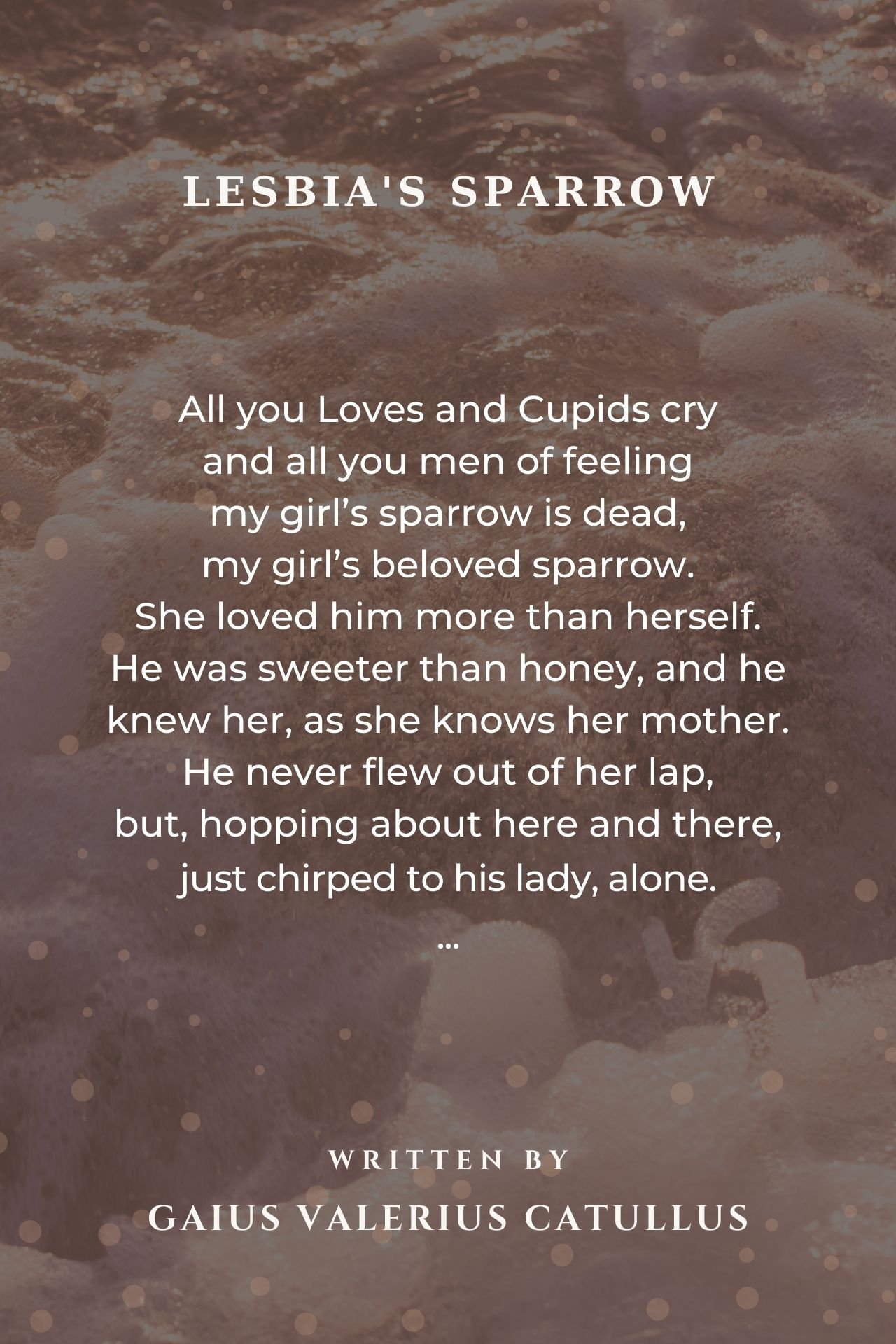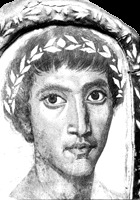Lesbia's Sparrow Poem by Gaius Valerius Catullus
Lesbia's Sparrow
All you Loves and Cupids cry
and all you men of feeling
my girl's sparrow is dead,
my girl's beloved sparrow.
She loved him more than herself.
He was sweeter than honey, and he
knew her, as she knows her mother.
He never flew out of her lap,
but, hopping about here and there,
just chirped to his lady, alone.
Now he is flying the dark
no one ever returns from.
Evil to you, evil Shades
of Orcus, destroyers of beauty.
You have stolen the beautiful sparrow from me.
Oh sad day! Oh poor little sparrow!
Because of you my sweet girl's eyes
are red with weeping, and swollen.

Catullus calls Clodia, ''Lesbia'' in honor of the Greek poet Sappho of Lesbos. Sparrow [= Latin ‘passer’ ] is a euphemism for ‘penis’.
Lesbia wasn’t her real name. Her real name was Clodia. Classical scholars disagree over whether she was the Clodia married to the praetor Metellus Celer, infamous for her licentiousness and possible matricide. Lesbia might have been one of Clodia’s sisters, or another Clodia altogether. What’s certain is that she was married and that Catullus’s relationship with her was adulterous. Though, like many adulterers, Catullus disapproved of adultery (in poem LXI he writes, “Your husband is not light, not tied/To some bad adulteress, /Nor pursuing shameful scandal/Will he wish to sleep apart/From your tender nipples, ”) , he found himself, in the case of Clodia/Lesbia, compelled to make an exception. He became involved with a wicked aristocratic Roman lady who used him as a plaything, or—the alternate version—he fell for a fashionable, married Roman girl, who ended up sleeping with his best friend, Rufus. [Jeffrey Eugenides]
This poem has not been translated into any other language yet.
I would like to translate this poem
eviI Shades of Orcus, destroyers of beauty./// wicked mind is destroyer of the love